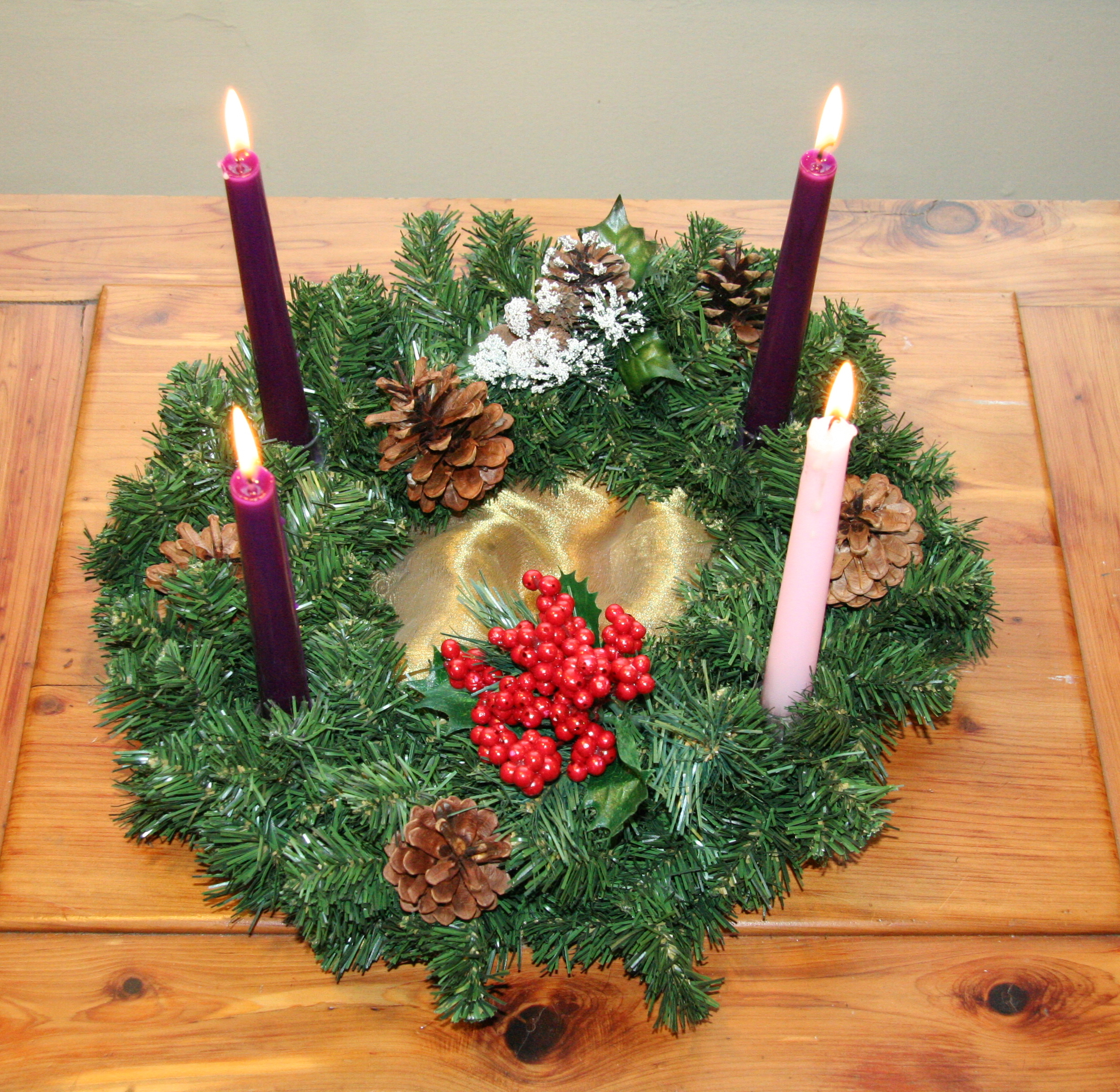Hey! Don't forget to enter to win the $25 Amazon.com gift card in my 5th anniversary giveaway!
This morning I asked for suggestions for something to write about on the blog today. That's something I may start doing more often. For one thing, it's hard to always come up with something to write about each day when I tend to do a lot of the same things day in and day out. On the other hand, getting a writing prompt from one of my 500 closest Facebook friends is a good way to keep my brain from stagnating.
My cousin in Colorado responded with, "Your take on the hope, joy, peace, and love aspects of advent."
To be completely honest, I don't know much about Advent. It's been a long time since I've been to a church that participated in the traditional Advent traditions. Growing up, Villa Heights Baptist always had its Advent weeks leading up to Christmas. Most of what I remember about this time involved the lighting of candles each week. For each of these weeks, a different family was chosen or volunteered to light a candle, read scripture, and explain the meaning of that week's candle.
Like I said, I don't remember much about it. I do remember feeling like it was pretty awesome the two or three times my family lit a candle. And the year that I got to hold the lighter, well, I kinda felt like a rock star. But I was just a kid and really had no idea that there was a meaning to any of it. They were just different candles that counted down the weeks until Christmas.
As an adult, I can't honestly say that I understand it any more than I did as a child. When my family left Villa Heights, our new church didn't follow along with the same sort of ceremony that our old church had, at least not that I recall. I think the candles were present and lit for the Christmas Eve service, and may have been there during the previous Sundays. But in college, and then in my church life beyond college, I really haven't experienced much mention of Advent.
So I'm doing a little research. I'll warn you, some of these facts may come from Wikipedia, so bear with me.
The word Advent comes from the latin adventus, which means coming. The Advent season, for Christians, serves as a reminder of the Hebrews' anticipation of Messiah's prophesied coming. It also serves to remind us of the Christian anticipation of Christ's return, or the Second Coming. Each of the four candles that make up the Advent Wreath holds its own meaning and symbolism.
First is the Candle of Hope. This is one of the purple candles and God's promise and His faithfulness. This reminds us that humanity's hope can only truly come from God.
The second candle, also purple, is the Candle of Preparation. Lighting this candle serves to remind us to be ready to welcome Christ into our lives. Christ already arrived once, and God sent prophets to prepare the way for Him. And just as God wanted His people to be ready for the Messiah's arrival, He also wants us to be ready for His return. Jesus promised that He'd come back someday and said that no one would know when. So candle number two is a reminder to always be ready.
Candle three, which is pink or rose, is the Candle of Joy. It represents the joy that the angelic chorus sang of when Jesus was born. Kind of obvious there. I mean, the Savior of the world is born. Pretty good cause for celebration.
And then there's the last purple candle, the Candle of Love. It's a reminder of why Christ was born in the first place. He came into the world because God loves us.
On Christmas Eve or Christmas day, there is a fifth candle that is lit, the Christ Candle, which represents His incarnation. Incarnation is just one of those big words that means "embodied in flesh." One of those foundational beliefs in Christianity is that Jesus is God, and therefore existed along with the Father and the Holy Spirit long before He took the form of a man. So when He was born in Bethlehem 2,000 years ago, that's when God became incarnate. Too deep for a Tuesday? Tough.
Yeah, that was pretty deep for a Tuesday. But I think it was a learning experience. Even if you didn't get much out of it, I did. Being away from churches that follow those old traditions can be good and bad at the same time. Personally (and this is just me talking), I think it can be dangerous to simply follow tradition for tradition's sake. Not that tradition is bad. The danger lies in believing what you believe simply because it's what you were told to believe, or because it's what your parents believed. The danger comes when we don't take the time to find out for ourselves what God's Word says. At the same time, some of those traditions (like Advent), can serve as little reminders of God's love and direction for our lives. I guess in those cases it's good to have both. If you find yourself questioning the real meaning of the traditions and ceremonies in your churches, don't be afraid to ask questions. My view is, if you don't understand what it is you say you believe, then is your faith really your faith? Or is it someone else's that just got passed on to you?

No comments:
Post a Comment